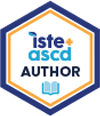

Event Information
A core feature of our playground will be five stations through which participants may cycle at their own pace. Each station will align to one of the five phases of the 5E design process: EXPLORE, EMPATHIZE, EXPERIMENT, EXECUTE and EVOLVE. As a result of moving through all five stations, participants will have designed a pocket-sided tabletop game (dice, roleplay, card, board, etc.) that demonstrates deeper understanding of an essential learning concept or skill. This game they will be able to take with them as an artifact of their learning as well as to use with their impact area.
In addition, there will be a series of 25-minute mini-sessions and stations featuring practitioners sharing strategies, stories, resources, and insights into game-based learning experiences. These practitioners will include designers, educators, organizers, and creators from a diverse range of experience and knowledge. We intended there to be 12-16 such mini-sessions and stations over the duration of the playground.
TabletopEDU https://www.tabletopedu.org/
Tabletop RPG Kids https://www.ttrpgkids.com/
Ellie Dix, game designer, Why Board Games Are Educational https://www.thedarkimp.com/blog/2021/04/15/why-are-board-games-educational/
Noda S, Shirotsuki K, Nakao M. The effectiveness of intervention with board games: a systematic review. Biopsychosoc Med. 2019 Oct 21;13:22 https://www.ncbi.nlm.nih.gov/pmc/articles/PMC6802304/
The Power of Board Games for Multidomain Learning in Young Children; Daniela K. O’Neill and Paige E. Holmes, American Journal of Play, 2022 https://files.eric.ed.gov/fulltext/EJ1357958.pdf
Quinn Rollins, Play Like a Pirate, Dave Burgess Publishing, 2016
Amy Burvall and Dan Ryder, Intention: Critical Creativity in the Classroom, Blend Education, 2019



















